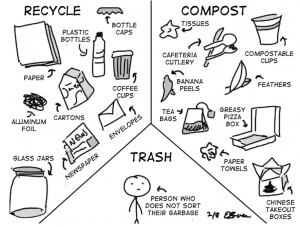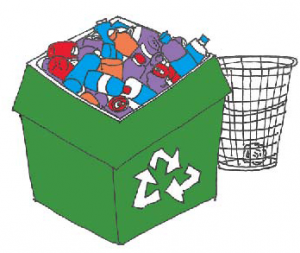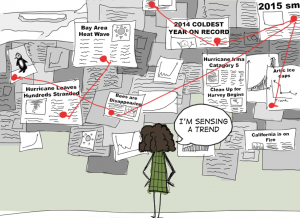The last straw
Lawmakers propose bill to eliminate plastic straws in restaurants.
March 22, 2018
As waste builds up in America’s landfills, California lawmakers are aiming to help reduce trash levels by lowering the use of plastic straws, specifically in restaurants.
Democratic Assemblyman Ian Calderon has proposed a bill prohibiting restaurants from serving customers straws, unless they are specifically requested. Failure to comply could result in fines or jail time for employees. The bill is still being reviewed, and the penalties are expected to be removed for the final bill.
“We very much support the goal of reducing and eliminating the use of plastic straws, but we prefer it not be legislative,” Gwyneth Borden, Executive Director of Golden Gate Restaurant Association said. “Most people think straws are compostable so they do not think twice about the fact they are using and taking straws.”
Only paper straws are compostable, while plastic straws go into the trash in San Francisco. In America alone, 500 million plastic straws are used daily, according to the National Park Service.
“Straws may seem like a very small thing, but all the small things we do matter to the environment,” Environmental Awareness club member Sophie Egan said. “The little things you give up help, like not using a straw or placing trash in the right bin.”
The proposed bill has brought awareness to the overuse of straws in general, and restaurants have started offering paper straws, according to Borden.
“But the challenge for a lot of restaurants is that paper straws cost seven times the cost of plastic straws, which is why a lot of places have yet to transition,” Borden said.
While the proposed law only addresses restaurants, straws are also available in coffee shops and even the school cafeteria operated by Sage Dining Services. The Environmental Awareness club hopes to address the use of straws on campus, according to club head Emma Hubbard.
“It is unnecessary, they can drink out of cup,” Environmental Awareness club member Poppy Cohen said about offering straws in the cafeteria for elementary school students.
San Francisco previously banned Styrofoam cups in 2016, as well as one-use plastic shopping bags in 2007, with the goal of reducing pollution in waterways from landfills, garbage trucks, and the streets.
To solve the problem of waste on land and in oceans, Borden says there needs to be an alternative approach addressing the root of the problem.
“Even if you manage to have paper straws, the biggest problem is about waste,” Borden said. “We all live a life of great excess and don’t think twice about taking more napkins or straws or ordering too much at a restaurant. Obviously San Francisco alone is not going to rid the ocean of straws, but having a more widespread approach may.”












